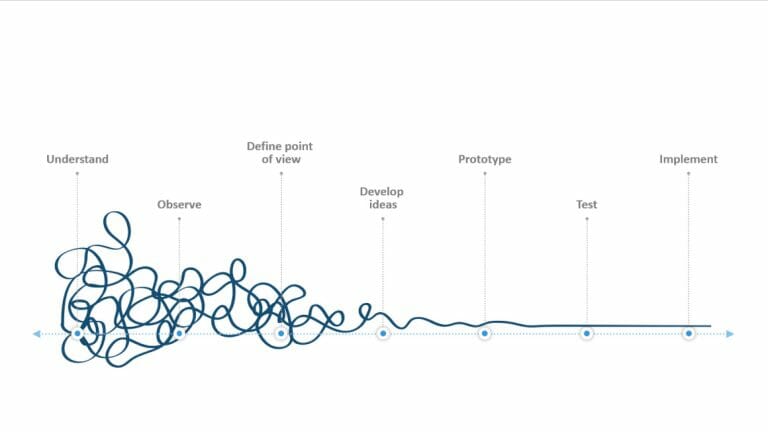
The 5-Act structure for your storytelling in presentations!
The 5-act structure is a good place to start if you want to improve your storytelling.
In 1863, Gustav Freytag, a German playwright, created a graphic depicting the “5-act structure” of ancient Greek drama and Shakespeare’s plays.
Understanding this framework will help you identify the main components of a story and ensure that your stories are compelling and engaging. Furthermore, the 5-act structure can be applied to any story, whether it’s a novel, a screenplay or even a blog post.
Why you should use storytelling in presentations
Storytelling means to tell stories. But why should you tell stories in a presentation? It’s simple: stories stimulate emotions and people’s creativity, and they always have. They are the oldest way to convey information.
Storytelling makes it easier to pick up your audience and take them on a journey through your presentation. With exciting storytelling, you are sure to capture your audience’s attention. A captivating storyline always makes you listen than just boringly presented facts.
For more information on how storytelling works and tips & tricks, read our article on “Storytelling in presentations”.
Structure of the 5-act pattern
So what are the five acts? Here is a brief overview:
Act I: Structure
The first part is about getting to know the protagonist(s) and learn about their world. We also learn about the conflict the protagonist will face throughout the course of the story.
Act II: Complications
The conflict takes shape and things start to go wrong for the protagonist(s). They face challenges and obstacles as they try to achieve their goal.
Act III: Crisis
This is the climax of the story, where everything comes to a head. The protagonist(s) is put to the ultimate test, and we learn whether they will succeed.
Act IV: Solution
The conflict is resolved, either through victory or defeat. We see how the protagonist has changed throughout their journey and what lessons they have learned.
Act V: Conclusion
Here we see how the story ends and how everyone fared. Finally, the open questions are clarified and we say goodbye to the characters.

Applying the 5-act structure
The5e-act structure is a great way to make sure your stories are properly structured and easy for readers to follow. Try it out the next time you structure your presentation and see how it works for you!
Design your presentations according to this structure. A strong dramaturgical framework means that your audience will stay connected to every point you make.
Do you have any questions about storytelling or PowerPoint in general? Feel free to contact us by email at [email protected]. We are always happy to help!
Are you looking for professionally designed slide templates to back up your presentation? Feel free ti have a look on our website and in our shop. Here we have numerous slides prepared for you to download on a wide variety of (business) topics. Take a look today! ► To the shop
These articles might also interest you:




